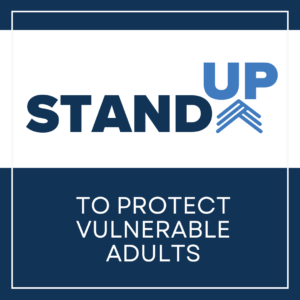“Why didn’t we say anything?”
This is a question my cousin and I recently pondered. We were both aware of the physical and verbal abuse that happened in my childhood home. She knew of abuse that happened in another cousin’s home. And we were both uncomfortable with the way the pastor of the church we attended as kids interacted with us.
Growing up, my cousin and I spent many days at each other’s homes. I spent most of my childhood in fear of my dad. I suffered from his abuse and from witnessing him abuse my mom and older brother. During this time, I was also sexually abused by an adult neighbor, and a few years later by an older male relative. Later in life, my cousin learned that the pastor I mentioned earlier had sexually abused her sister when she went to him for counsel during a crisis in her life. In one life story–mine–there is abundant testimony to the fact that physical, sexual, spiritual, and emotional abuse happens in our homes, extended relationships, and churches. What are Christians to do?
I did not tell anyone of the sexual abuse I suffered until I was almost 40 years old. In hindsight, I think I did not tell because I thought there was no one to tell. Maybe no one cared. I learned that we don’t tell such things. For years, I wondered why no one, outside our home, did anything about it. About 10 years ago, I asked my aunt that question. She said, for years no adults outside my home knew. Does anyone care? Does God care?
God is not silent on the problem of oppression and abuse, and the church of Jesus Christ cannot be silent either. God, through His Son, the Holy Spirit, and His Word’s promises and one-another commands, has given Christians all we need for dealing with abuse and oppression in a way that honors Him. Christians, of all people, should stand with the oppressed and offer help in their time of need. This manifests the heart of God for the oppressed (i.e., Ps. 9:9; 10:18; 103:6). Speaking openly about this issue allows others to know we care, and offers them safety and help.
Once, while I was counseling a young woman, she expressed discouragement because the women in her small group did not speak of any “deep” personal struggles. She was hurting, but since no one in her group was transparent she did not think she could be either. I challenged her to “go first” so others could come alongside her and perhaps decide to share their own burdens.
In addition to speaking openly about the problem of abuse with others, ask questions– especially if you suspect abuse is part of her/his life. It is better to be wrong than to be right and not ask. Moreover, the one reporting abuse should be taken seriously. The report should be investigated and not dismissed due to previous choices of the one reporting the abuse. Furthermore, adults and children need to be educated on what to do if anyone threatens or harms them physically or sexually, as well as situations to avoid that can reduce the opportunity for abuse to occur. It is also important to instruct them to report when the law requires it. This can be hard because often the abused do not want harm or hardship to come to the offender, but God put governmental authority in place for our good and the good of the offender. It is loving to confront and admonish sin, and it may help to prevent further abuse of others. You can offer to sit with her as she makes the call. As a counselor and friend, I have sat with several women as they made this call. If she is unwilling to report, you need to, lovingly, let her know you are required to, legally and morally, and will make the call.
God graced me with salvation when I was 32. I was a wife and new mother. God grew a hunger in my heart for biblical truth. God’s Word quickly gave me peace, hope, and joy. Through Bible study and the influence of women in the church, I began to understand God’s love, grace, mercy, and how He uses hardship in our lives. He used the difficulty in my own life to grow compassion in my heart for children and women who are in oppressive and/or abusive relationships. God has given me the privilege of serving as an ACBC certified counselor at my church for the last 13 years. I have counseled young girls who have been sexually molested by peers and family members. I have counseled women who are in abusive and/or oppressive marriages. These girls and women are hurting and often confused about what happened or is happening. God has faithfully given them hope, comfort, joy, and strength in their hardships.
As church leaders take abuse seriously, church attenders will take it more seriously and may come forward to get help. Also, abusers may be reluctant to abuse. Recently, the elders and counselors at my church (Christian Family Chapel) were required to participate in a Domestic Abuse Workshop. We were grateful for the training and for the elders’ acknowledgement of the seriousness of this issue.
Helping women and children who have been abused takes time, listening, prayer, and teamwork. Anyone willing to come alongside may be in the trench for some time, and a team is necessary to help with the various aspects of the situation. When abuse is addressed in the church, members are made aware of needs and can serve to help those in need. This is not an issue that should be brushed aside or ignored by the church. Victims should not have to wonder like I did if anyone cared or if God cared and ask why no one said anything. Don’t be silent. Listen, ask questions, respond biblically, and care well for the abused and oppressed.
Suggested Scriptures and Resources:
Psalms that focus on God’s attributes and cries for help.
Old Testament narratives such as Joseph, Hagar, and Sarai when Abram gave her over to other men.
31 Days toward Trusting God by Jerry Bridges
Who Am I: Identity in Christ by Jerry Bridges
The Heart of Domestic Abuse-Gospel Solutions for Men Who Use Control and Violence in the Home by Chris Moles.
Local Abuse Hotline: https://www.thehotline.org; https://ncadv.org/resources





